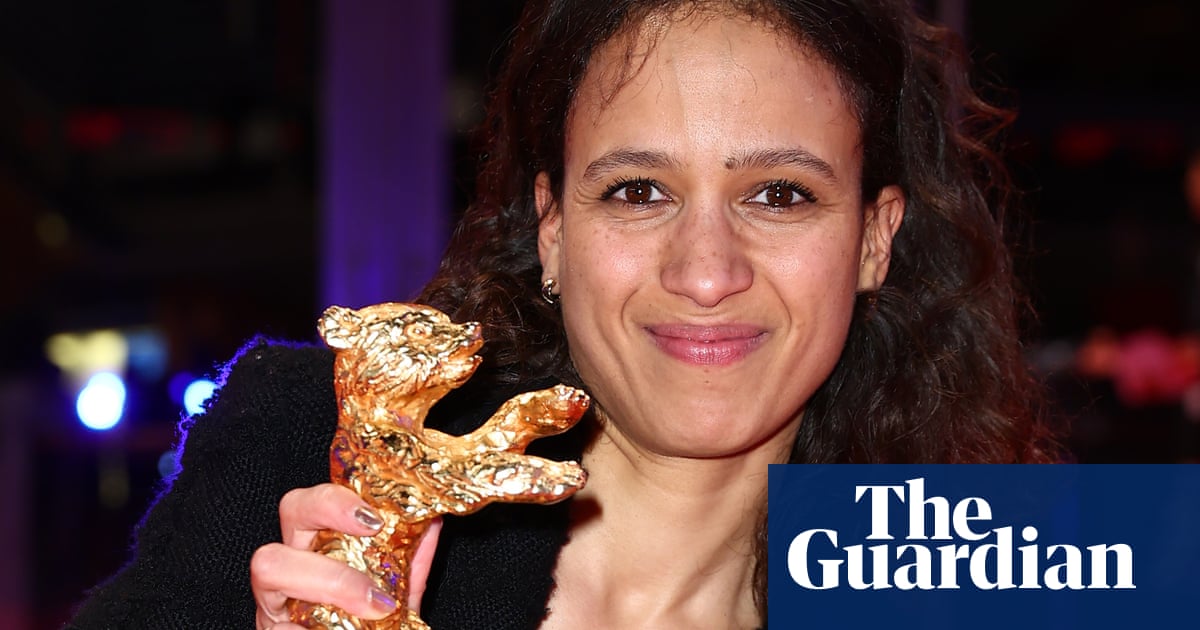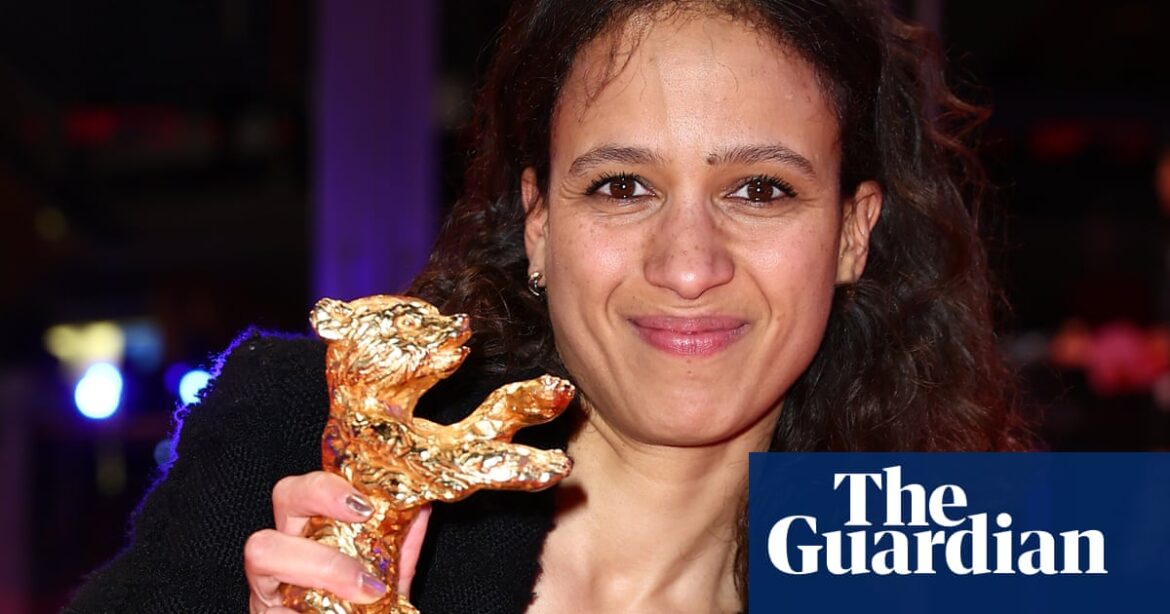
The top prize at the Berlin film festival was won by Mati Diop’s documentary, which focused on the first significant repatriation of stolen artifacts from Europe back to Africa. This victory came as a surprise, as Diop’s film surpassed many established directors’ works.
The 41-year-old French-Senegalese director’s hour-long movie, Dahomey, chronicles the return journey of 26 stolen treasures from Paris to Benin in 2021. These artifacts were taken by French forces almost 150 years ago.
Dahomey shows the celebrations in Benin’s economic capital, Cotonou, that greeted the priceless artefacts, including a towering wooden throne and lifesize zoomorphic statues, but also shows young people asking what will happen to the thousands of objects that remain in French museums.
Diop stated upon receiving her award that to restitute means to bring about justice. We have the choice to either let go of the past as a burden that hinders our progress, or take responsibility and use it as a foundation for moving forward. The decision is ours to make.
The victory of Dahomey was a surprising result at the 74th Berlin film festival, where Diop received the Golden Bear award for best film over more experienced filmmakers like Olivier Assayas and Hong Sang-soo. Another notable film, “My Favourite Cake” by Iranian directors Maryam Moghaddam and Behtash Sanaeeha, was also a critics’ choice.
In the past few years, the organizers of the festival have received negative feedback for not bridging the gap between the Berlinale and the larger, more glamorous film festivals of Venice and Cannes. However, by giving the top award to Dahomey, the jury reaffirmed Berlin’s unique and politically-driven identity, rather than conforming to popular tastes.
In the past, at the event, a judge compared the Berlin Film Festival to a “protected environment for movies that are not able to be exhibited elsewhere.” Awarding the best director prize to Nelson Carlo de los Santos Arias’s Pepe, a captivating yet boldly experimental movie about Pablo Escobar’s drug-infused hippos, solidified this reputation.
Sebastian Stan, an actor of Romanian and American descent, received the Silver Bear award for best actor for his portrayal in the dark comedy A Different Man. Emily Watson also won an award for best supporting actor for her role as a menacing mother superior in the drama Small Things Like These, which focuses on Magdalene Laundries. German director Matthias Glasner was recognized for his screenplay of Sterben (Dying), a black comedy centered around a family with emotional issues.
The documentary No Other Land, which focuses on the destruction of Palestinian villages in the West Bank, received the award for best documentary at the festival. It had previously won one of the festival’s two audience awards, which are chosen by the viewers of the films.
A group of four young film-makers collaborated on creating the documentary, which centers on the story of Palestinian activist Basel Adra and Israeli journalist Yuval Abraham. Together, they join forces to document the devastation of the community of Masafer Yatta caused by Israel’s occupation.
Ignore the advertisement for the newsletter.
after newsletter promotion
Upon receiving his award, Adra expressed difficulty in celebrating as he was aware of the ongoing violence and killings of his fellow citizens in Gaza by Israel. He implored Germany to adhere to UN requests and cease the supply of weapons to Israel.
“This system of segregation, this lack of fairness, needs to come to an end,” stated Abraham, his creative partner. “We must demand a halt to hostilities and strive for a political resolution.”
During the awards ceremony, the focus shifted to the ongoing conflict in the Middle East. Many winners and judges took the opportunity to advocate for a ceasefire in Gaza when they spoke on stage. While accepting the Encounters best film award for his documentary Direct Action, American director Ben Russell showed his support by wearing a keffiyeh, a symbol of Palestinian nationalism. Diop, who was an unexpected winner that night, also expressed her support for Palestine.
The 74th Berlinale marks the last installment of the film festival overseen by Italian artistic director Carlo Chatrian and German managing director Mariëtte Rissenbeek. They will be handing over the reins to Tricia Tuttle, who previously served as the head of the BFI London film festival.
Source: theguardian.com



